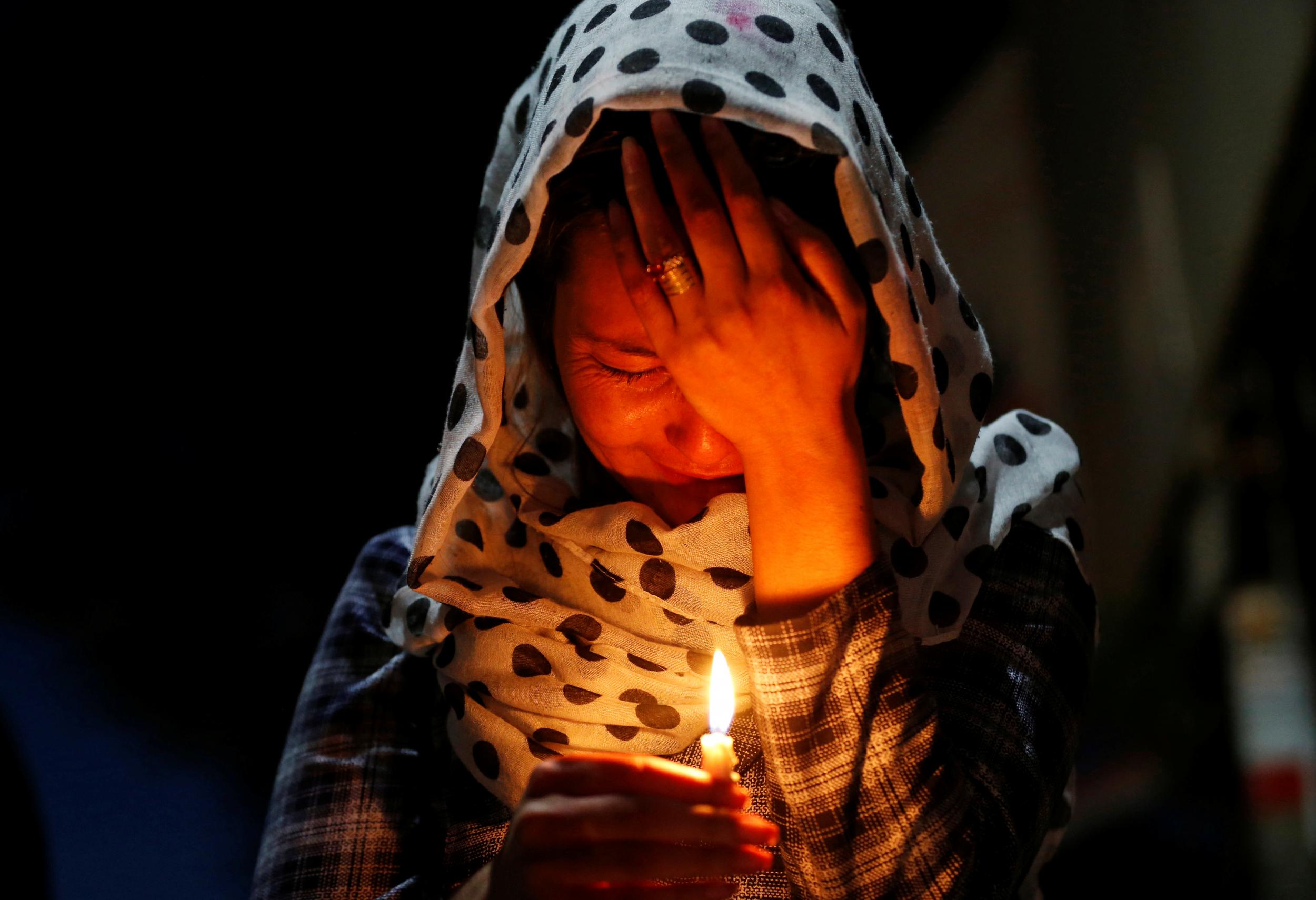Kabul bombing: Who was responsible for the attack that killed 90 people?
Taliban denies carrying out massive suicide truck bombing as anger grows over incident in supposedly secure area of Afghan capital

Your support helps us to tell the story
From reproductive rights to climate change to Big Tech, The Independent is on the ground when the story is developing. Whether it's investigating the financials of Elon Musk's pro-Trump PAC or producing our latest documentary, 'The A Word', which shines a light on the American women fighting for reproductive rights, we know how important it is to parse out the facts from the messaging.
At such a critical moment in US history, we need reporters on the ground. Your donation allows us to keep sending journalists to speak to both sides of the story.
The Independent is trusted by Americans across the entire political spectrum. And unlike many other quality news outlets, we choose not to lock Americans out of our reporting and analysis with paywalls. We believe quality journalism should be available to everyone, paid for by those who can afford it.
Your support makes all the difference.The people of Kabul are losing patience with the weak and divided government of President Ashraf Ghani after a suicide truck bomb ripped through the city’s diplomatic quarter, killing 90 people and wounding more than 400.
Wednesday’s grisly attack - the latest in a series of grim extremist incidents carried out by the Taliban and Isis across Afghanistan since the withdrawal of international troops in 2014 - occurred at rush hour at a busy intersection, setting dozens of cars on fire and shattering windows a kilometre (0.5 miles) away.
With no claim of responsibility, it is unclear what the intended target was. What is certain is that the incident took place inside Kabul’s heavily-fortified diplomatic district, metres away from the German embassy building and a stone’s throw from the Presidential Palace - an area which is supposedly the safest in the city.
While a number of foreign nationals were harmed, all of the dead were - as usual - Afghan citizens. A number of people are still missing.
As they mourn loved ones at the beginning of the holy month of Ramadan, Kabul’s residents are increasingly angry at the chronically fragile security situation.
“For God's sake, what is happening to this country?,” Ghulam Sakhi, a shoemaker whose shop is close to the site of the blast, said to Reuters.
“People leave home to fetch a loaf of bread for their children and later that evening, their dead body is sent back to the family.”
While the Taliban issued a statement shortly after the incident denying responsibility and condemning the excessive loss of civilian life, many observers believe the insurgent group is to blame for the carnage, rather than Isis, which has also carried out recent high-profile attacks.
Afghanistan's main intelligence agency has blamed the Haqqani network, an affiliate group directly integrated into the Taliban, claiming it acted with the help of Pakistan's intelligence service (a claim denied by the Pakistani foreign ministry).
In what is being viewed as a move aimed at placating his critics, President Ghani on Thursday reportedly ordered the revenge execution of 11 Taliban militants currently on death row.
The Taliban responded by warning the government against harming any of their prisoners, threatening retribution for which “the government will be responsible.”
Calls for senior members of the government and security services to step down are growing across the country.
There are dozens of checkpoints at which vehicles are stopped on their way into Kabul, but a high-tech security gates and scanners funded by China delivered a year ago have still not been set up because of bureaucratic hold-ups.
“Right now, thousands of our people are in mourning. Why and for how long do we have to suffer this situation?” said shopkeeper Enayatullah Mohammadi. “We want our leaders to ensure security in the country and if they can't, they should resign,” he added.
Although the Taliban lost control of Afghanistan following the US invasion of 2001, it has steadily regained ground since US and allied troops left in 2014, and is now in control of some 40 per cent of the country.
The chaos has also allowed Isis’ Afghan affiliate to flourish, complicating the war against Islamist insurgents.
In March the Pentagon urged US President Donald Trump to send reinforcement troops to cope with the deteriorating security situation.
Around 8,400 US military staff and 5,000 soldiers from Nato ally countries are currently deployed to Afghanistan.
Join our commenting forum
Join thought-provoking conversations, follow other Independent readers and see their replies
Comments